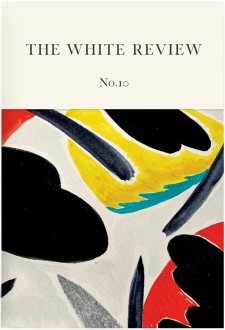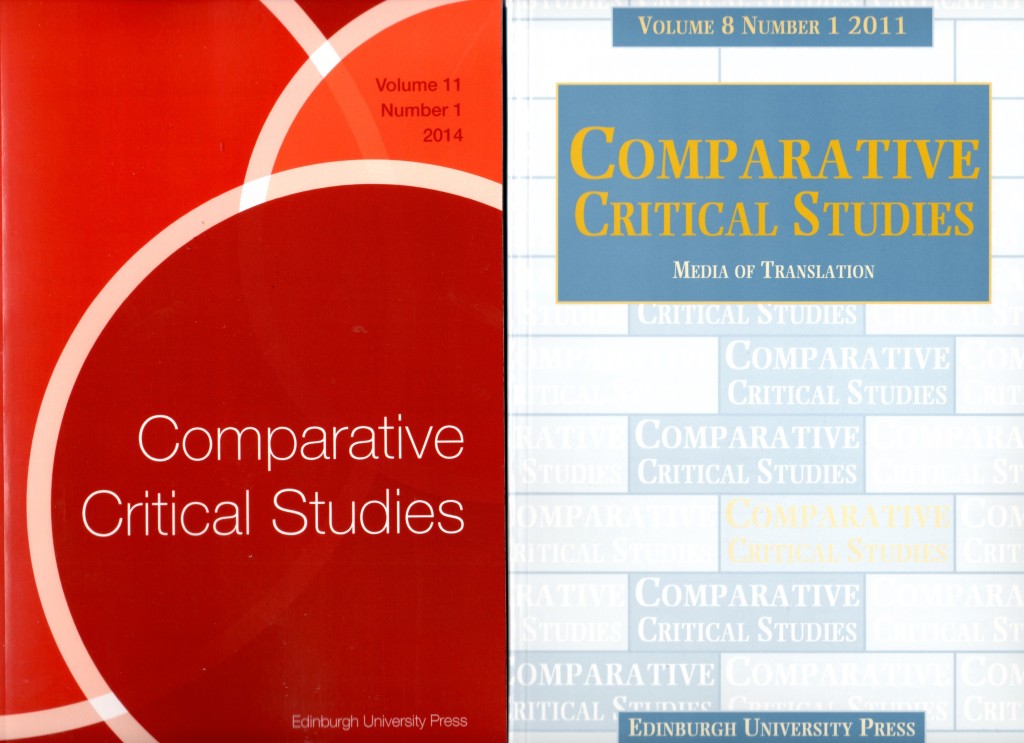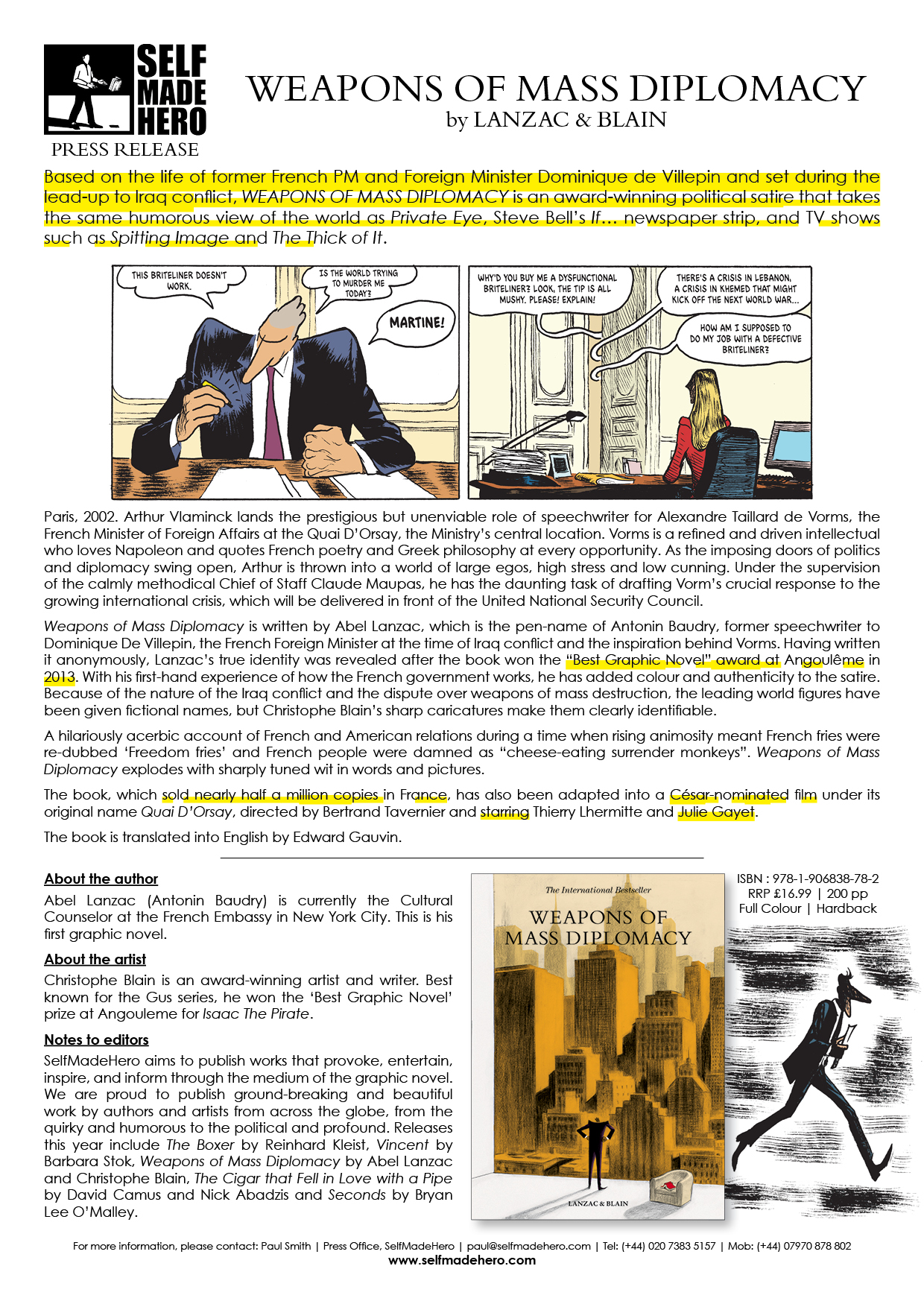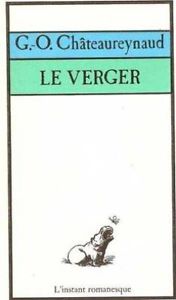April 30th, 2014 § § permalink

Now live online, the latest incarnation of Fiction France: VERSO. Formerly a print publication of the Institut Français (IF) that highlighted the latest French literary releases with translated excerpts, it now continues its mission in virtual form. The Institut is an arm of the Ministry of Foreign Affairs.
I translated four excerpts from the latest round of books:

Lola Lafon’s The Little Communist Who Never Smiled, a critical-biographical novel of Nadia Comăneci. Personally, this was the most fascinating title for me. It really tackles head-on, through the gymnast’s story, issues of celebrity and our culture’s exploitation of little girls.

Rising star Arthur Dreyfus takes on Foucault with his History of My Sexuality, an innovative gay novel.

In the magical romance Next Year in Granada, Gerard de Cortanze traces, from the Moorish conquest of Spain to the present day, the life of a single Jewish girl who becomes the living embodiment of her people’s memory.

Bruno d’Halluin pulls off a similar feat of research in The Lost Man of Lisbon, a historical adventure set in the Age of Exploration.
April 28th, 2014 § § permalink

Now out in Issue 10 of The White Review, my translation of the title essay from Jean-Philippe Toussaint’s book of essays Urgency and Patience, forthcoming from Dalkey Archive. An excerpt:
I like that moment at dawn when you cautiously open the manuscript of a book in progress, in a house still asleep. There are several strategies for trying to see the work with a fresh eye, to surprise it, catch it unawares, as if seeing it for the first time, to judge it with an unbiased eye. A nap can do the trick; a good night’s sleep is even better. I even suspect that part of reading a book over can happen during sleep. When you’re awake, a book etches itself into the brain with the precision of a chess position, but when you sleep at night, the study of variants continues, as with a computer you leave on to examine the immensity of the calculations in play in an operation (such that sometimes the answer comes to me on waking without any particular conscious effort). But no point doggedly deleting without end; only time truly cleanses and renews one’s vision. According to Palma the Younger, Titian always turned his paintings to the wall for months at a time without looking at them. Then, when he took them up again, ‘he would examine them with strict attention, as if they had been his mortal enemies.’ Oh, dear mortal enemies!
Toussaint needs little introduction as an author–he is, in his own words, “really famous, though no one knows about it”–but just in case: the Belgian writer and filmmaker’s eleven books have been translated into more than twenty languages and won numerous literary prizes, including the Prix Médicis in 2005 for his novel Running Away, and the Prix Décembre in 2009 for The Truth about Marie, the two middle books of the Marie tetralogy (both translated by Matthew B. Smith).
April 25th, 2014 § § permalink
- At The Pan Review, Mark Andresen devotes some well-chosen words to Jean Ferry’s collection The Conductor and Other Tales:
First there is the voice; lackadaisical, steeped in cynical wit. Then there is the experience. Unmistakeably, that of a man in middle-age[…]
The frontispiece image is a welcome photograph of the author, taken the year before his death in 1973. Sitting on a swing in his back garden, Ferry is bald, bespectacled and gnomishly pudgy, his fingers clasped together beneath his belly, like a Buddha with a philosophy doctorate. If any reader doubted satirical humour resided in the suicidal instinct, this intriguing reissue responds in the paradoxical positive.
I like very much Andresen’s take that Ferry’s “Failure of a Fine Career in Letters†reflects “Joyce while foretelling Calvino,†though his read on the story “The Society Tiger†is perhaps one of the oddest I’ve encountered:
‘The Society Tiger’ is a glimpse into the author’s compassion, (at animal maltreatment) which might otherwise have been assumed wanting elsewhere.
- An interview I translated with Swiss comics creator Frederik Peeters is up at Comic Book Resources, in concert with the recent U.S. release of Book I of his far-future SF series Aama.
April 17th, 2014 § § permalink

So the 2014 Eisner award nominees have just been announced, and this is the second year running I’ve had a translation on the ballot, and in one of the same categories: Best Reality-Based Work. Last year it was A Chinese Life by Li Kunwu and Philippe Ôtié, published by SelfMadeHero, and this year it’s A Bag of Marbles, by Kris and Vincent Bailly, from Lerner Graphic Universe, a graphic adaptation of Joseph Joffo’s classic memoir about growing up Jewish in occupied France.
Congrats to all my fellow nominees, which are:
- The Fifth Beatle: The Brian Epstein Story, by Vivek J. Tiwary, Andrew C. Robinson, and Kyle Baker (M Press/Dark Horse)
- Hip Hop Family Tree, vol. 1, by Ed Piskor (Fantagraphics)
- March (Book One), by John Lewis, Andrew Aydin, and Nate Powell (Top Shelf)
- Today Is the Last Day of the Rest of Your Life, by Ulli Lust (Fantagraphics)
- Woman Rebel: The Margaret Sanger Story, by Peter Bagge (Drawn & Quarterly)
SelfMadeHero made a strong showing this year, with 7 nominees in 5 categories! One of their boos, up for Best Humor Publication, is
The (True!) History of Art, by Sylvain Coissard and Alexis Lemoine. For over a decade now, my friend Sylvain has been one of the principal behind-the-scenes players in bringing English readers French comics, as a rights agent for Delcourt, Futuropolis, Sarbacane, Gallimard, and all of Lewis Trondheim. This is Sylvain’s first book as a writer, and a sequel is in the works! I’m glad he’s getting some spotlight at last!
Voting is open, and anyone can vote! Go to it!
April 15th, 2014 § § permalink

The latest issue of the British Comparative Literature Association’s journal, Comparative Critical Studies, is out: Vol. 11, No. 1, red cover, eds. Maike Orgel and Glyn Hambrook. It contains excerpts from the 2013 John Dryden Translation Prizewinning pieces, including my rendition of Marcel Brion’s “La Capitana†from Les Escales de la haute nuit (Laffont, 1942). It was my first time working on Brion, though I’ve written on him at Weird Fiction Review.
Essayist, critic, novelist, and historian, Marcel Brion (1895–1984) wrote nearly a hundred books, ranging from historical biography to examinations of Italian and German art. Later in life, he turned to fiction, distinguishing himself in the domain of the fantastic. A regular contributor to La Revue des Deux Mondes and Les Nouvelles littéraires, Marcel Brion was for more than two decades also the foreign literature editor for Le Monde, where he brought Rainer Maria Rilke, James Joyce, and Dino Buzzati to the public eye. Brion was a member of the Academie Française, a knight of the Légion d’honneur, the Ordre national du Mérite, and the Ordre des Arts et des Lettres. His most memorable contributions to the field of the fantastique include the story collections Les Escales de la haute nuit (1942) and La chanson de l’oiseau étranger, and the novel La ville de sable. Here’s an excerpt:
It was an old house—noble, slightly decrepit—like most dwellings in that former Parlement town, where hardly a living thing was left save for great chestnut trees that renewed their youth in pink candelabra every spring, and fountains whose eternal voices sang the same joys and sorrows year upon year, century upon century. Sonorous, high-ceilinged rooms, somehow ardent and despondent at once, stirred up dreams and nostalgia. Close walls hemmed in a garden like a miniature jungle, choked with vague notions of escape. A house like that took possession of you as soon as you stepped over the doorsill. It inhabited you more than you it, filling you by turns with enthusiasm and gloom, depending on the path of the sun, the course of clouds, the sudden or furtive entrance of night. It presented one of those traps where the deceptive safety of an open door hid the impossibility of later turning back. It proffered a hook disguised a rose in a crystal vase, a ceiling with stucco volutes, shepherds playing instruments over the doors, acrobat monkeys tucked away in an alcove. The magic of the house was such that it made you forget the portion of time and space you belonged to, offering instead a lure of illusory infinity.
The last piece I had in Comparative Critical Studies was in the other issue pictured above, when I won the 2010 Dryden Prize for my translation of André Pieyre de Mandiargues’ story “The Red Loaf.†Mandiargues (1909-1991) was a French writer of the fantastic whose prolific output included poems, plays, essays, novels, and short stories. He also translated works by Yeats, Mishima, and Paz. Initially affiliated with Surrealism, he went on to be known for his flamboyant style and fascination with the erotic and macabre. His 1967 Goncourt-winning novel La marge was translated as The Margin (Calder & Boyars, 1969) by Richard Howard, and his novel La motocyclette (Gallimard, 1963) made into the film The Girl on a Motorcyle (1968) by Jack Cardiff.
Both these pieces were challenging to translate in similar ways: handling ornate prose styles that ranged from stately and classical (Brion) to idiosyncratic and outré (Mandiargues). I won’t excerpt the Mandiargues here, since it can be read in its entirety at Words Without Borders.
April 9th, 2014 § § permalink
 In these last few weeks before the 4/17 UK release of Weapons of Mass Diplomacy by Abel Lanzac and Christophe Blain, mentions of the acclaimed graphic novel are popping up:
In these last few weeks before the 4/17 UK release of Weapons of Mass Diplomacy by Abel Lanzac and Christophe Blain, mentions of the acclaimed graphic novel are popping up:
- at the Paris Review blog, writer Antonin Baudry (Abel Lanzac) gives an interview on the book
- Zainab Akhtar at Comics and Cola enthuses over artist Christophe Blain and runs the eight-page preview from publisher SelfMadeHero
- Mark Willis at A Blind Flaneur does the same, and throws in the preview for the film adaptation, which opened in select American theatres on March 21st
Don’t forget the excerpt available since February at Words Without Borders, along with an essay I wrote about working on the translation!
April 7th, 2014 § § permalink

“The Orchard,†Georges-Olivier Châteaureynaud’s most oft-reprinted story in France, makes its English-language debut at Web Conjunctions, the online wing of the celebrated literary magazine. This delicate and mournful tale of a child in a concentration camp has echoes of I.B. Singer, and was singled out by Marcel Schneider in his history of the French fantastique:
It would be easy to lend this apologue a moral meaning: the curse of being alone in Paradise, the need to share in shared misfortune, the fate of the tribe. But none of this ever crossed the author’s mind. At the origins of this story are a dream, a series of dreams, a hallucination from childhood. His own father having suffered deportation and internment, Châteaureynaud violently felt the brutality of the camps. What touches the reader is the tale’s perfection and the strange beauty emanating from it. The author gives no thought to turning it into a moral tale.
I am not sure why this chapbook version of it has a hippo on the cover, since no hippos, alas, figure in the story.
Here’s an excerpt:
One soldier stayed to the side. Though the child couldn’t make out his face at this distance, he knew it was his pursuer. The man had slung his truncheon back onto his belt. He smoked pensively in the night, staring at the barbed wire. The child blinked. He struggled against sleep for a few moments more, but his head was too heavy, and the grass too soft. He surrendered. At an order, the soldiers tossed their cigarettes aside and lined up. Following the officer, they headed back through the muddy field. The noise their boots made, the same hammering that had sometimes kept him up all night when it rang through the streets of his village—now the child didn’t hear a thing. He slept.
April 5th, 2014 § § permalink
At Publishers Weekly, Peeters scores his second starred review in a row after last year’s Pachyderme, this time for the first volume of his SF epic Aama. The reviewer says:
Peeters is best known for his intimate graphic novel Blue Pill, but he seems to have produced this mind-bending tale of SF mystery and intrigue without breaking a sweat, offering clever retro-future designs and rich, moody hues. The expectantly hallucinatory unraveling of the mystery should satisfy fans of psychological sci-fi like 2001: A Space Odyssey and Solaris.









